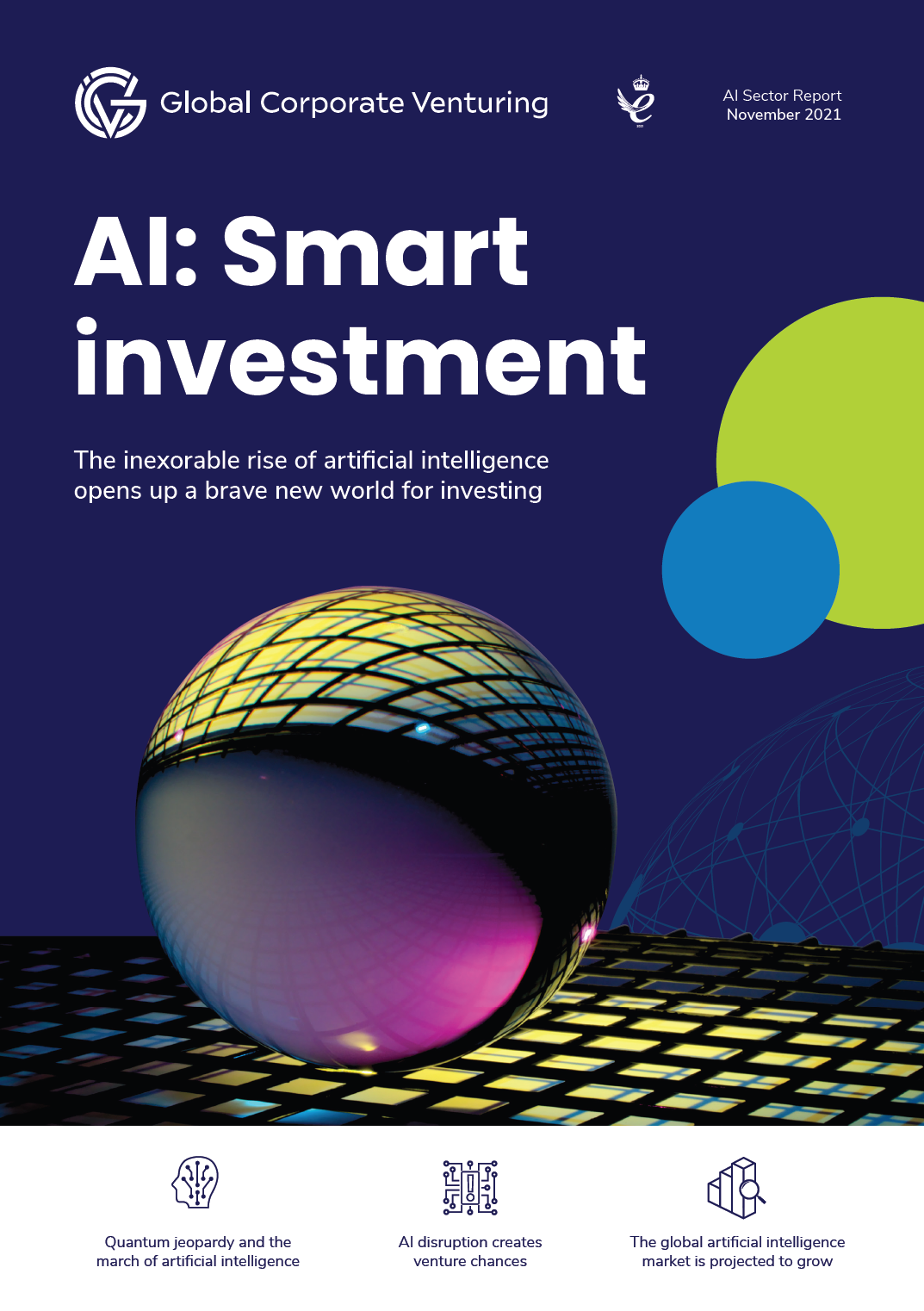From applications in clinical areas such as diagnostics and drug discovery, to the chemical, manufacturing, retail and automotive sectors, artificial intelligence (AI) technologies have disrupted many traditional industries, opening new frontiers and driving the development of ground-breaking solutions.
The global AI market is projected to grow at a CAGR of 33% in the next decade, expanding from $47bn in 2021 to $360bn in 2028, according to a recent report published by Fortune Business Insights.
An increasing number of corporate venturing units have been targeting AI businesses across the globe. In 2019, 100 corporate-backed deals were inked in the sector, worth an aggregate value of around $4bn, a 33% increase in volume and a 100% rise in value…









